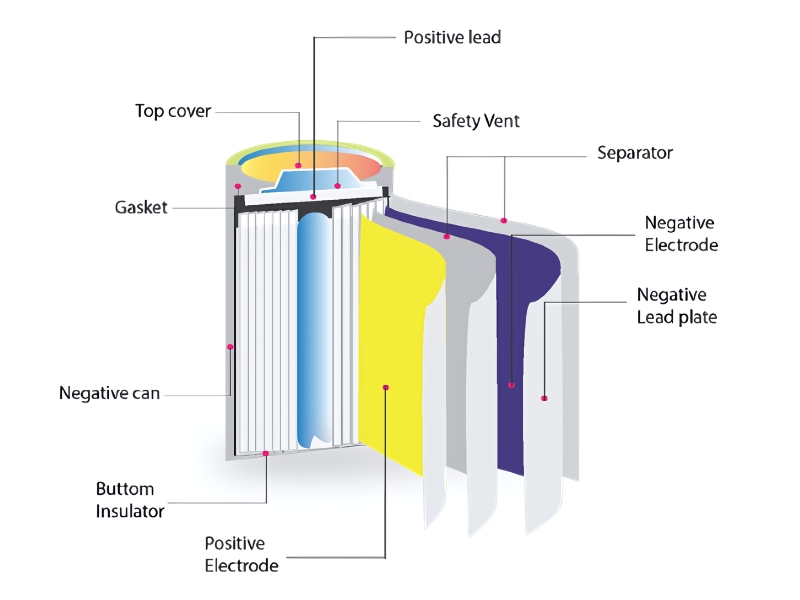Lithium-ion batteries, commonly referred to as Li-ion batteries, are rechargeable batteries that use lithium-ion compounds as their primary active material. These batteries are widely used in various industries due to their high energy density, long cycle life, and low self-discharge rate, making them an ideal choice for applications ranging from electric vehicles to portable electronics and energy storage systems.

A typical lithium-ion battery consists of a positive electrode (cathode), a negative electrode (anode), an electrolyte, and a separator. Let's explore these components in detail:
The cathode in lithium-ion batteries typically consists of lithium compounds like LiXCoO₂, LiXNiO₂, or LiXMnO₂. These materials are chosen for their ability to store and release lithium ions during the charge-discharge process. The cathode also includes a conductive agent to improve its electrical conductivity, along with a binder to hold the materials together.
The anode is usually made from graphite or other carbon-based materials such as MCMB (mesocarbon microbeads). Like the cathode, it also contains a binder and a conductive agent to enhance performance. During charging, lithium ions move from the cathode to the anode and are stored in the anode structure. Upon discharging, the ions move back to the cathode, releasing energy.
The electrolyte plays a crucial role in the operation of the battery, allowing the flow of lithium ions between the electrodes while preventing the flow of electrons. It consists of an organic solution with dissolved lithium salts, such as LiPF₆ or LiAsF₆. There are three main types of electrolytes: liquid, solid-state, and molten salt. The electrolyte needs to be chemically stable and must exhibit high ionic conductivity with low electrical resistance, reducing energy losses within the battery.
The separator is a crucial component that physically separates the positive and negative electrodes, preventing short circuits. It is usually made of materials like polyethylene (PE) or polypropylene (PP/PE/PP) that allow ion flow while preventing direct contact between the electrodes. It must have excellent chemical stability, good mechanical strength, and low ionic resistance to ensure the efficient operation of the battery.
The external shell of a lithium-ion battery serves as a container for all internal components. In the case of polymer lithium-ion batteries, the housing is often an aluminum-plastic laminated film. The housing must withstand mechanical stresses such as vibration and impact while also being corrosion-resistant and able to handle temperature fluctuations.
Lithium-ion batteries represent a cutting-edge solution for modern energy storage needs. With their advanced technology, durability, and efficiency, they are becoming indispensable in many industries, from renewable energy storage to electric mobility.
E-Mail: inquiry@fentbattery.com
Tel: 0086 20 3901-1403
Address: No.3, Dongli Road, Xili, Dongyong Town, Nansha District, Guangzhou City, China
Copyright@ China lithium ion battery manufacturers & suppliers & producers | Lithium Battery Factory & Company-BATTSYS Sitemap